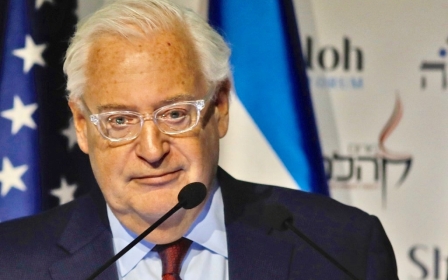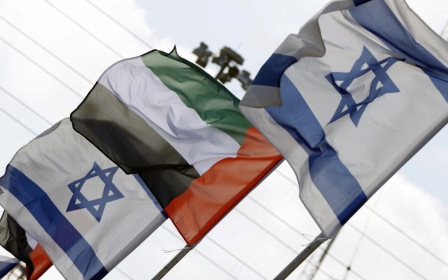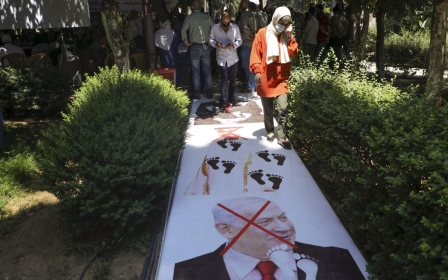Israel's West Bank annexation postponed for a year, not cancelled, says Friedman

Israel's pledge to halt the annexation of the occupied West Bank under its recent normalisation deal with the UAE and Bahrain would not stop it going ahead in future, David Friedman, the US ambassador to Israel, again emphasised on Wednesday.
"We said in our statement that sovereignty will be postponed, and this does not mean that it has been abolished, but rather that it has stopped. It has been suspended for a year, maybe more, but it has not been cancelled," Friedman told Israeli Army Radio.
Friedman attended the signing of the controversial normalisation deal between Israel, Bahrain and the UAE in Washington on 15 September.
Palestinians from across the political spectrum have condemned the deal as an act of “betrayal” of their struggle against Israeli occupation.
President Mahmoud Abbas and other Palestinian political leaders say the accords violate a longstanding pan-Arab position that Israel could normalise relations only in return for an end to the occupation.
The UAE has said that as part of the normalisation deal it had obtained a major concession from Israel and the US to halt plans to annex territory in the occupied West Bank.
However, in an interview with Israel Hayom newspaper following the signing, Friedman predicted that the annexation would still take place. "I think it will happen," he was quoted as saying.
He added that he believed the issue could be revisited in a manner that would be less controversial. "It's a temporary suspension," he said.
Middle East Eye propose une couverture et une analyse indépendantes et incomparables du Moyen-Orient, de l’Afrique du Nord et d’autres régions du monde. Pour en savoir plus sur la reprise de ce contenu et les frais qui s’appliquent, veuillez remplir ce formulaire [en anglais]. Pour en savoir plus sur MEE, cliquez ici [en anglais].




